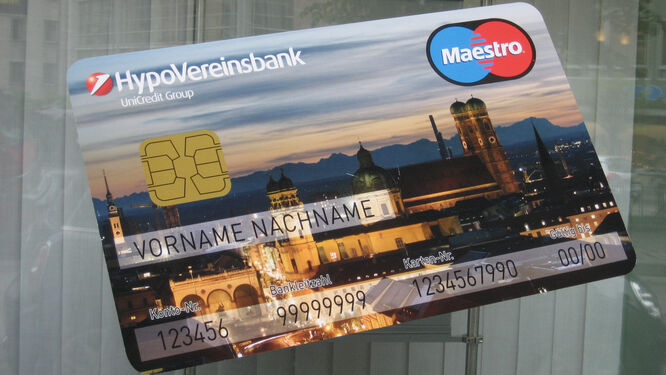Overseas Card Fees (and How to Avoid Them)
By Rick Steves
American travelers often return home to discover they paid more for their trip than they thought they had, thanks to banks charging high fees for overseas transactions. With some forethought, you can keep these fees to a minimum.
For any purchase or withdrawal made with a card, you may be charged any or all of the following fees:
- A currency conversion fee (usually 1–3 percent of the whole amount)
- A Visa or MasterCard international transaction fee (less than 1 percent; a few banks absorb this fee for you)
- For debit cards, a flat $2–5 transaction fee each time you use a foreign ATM (note that some major US banks partner with European bank chains, allowing you to use those ATMs with no fees at all — ask)
While these fees are legal, they're basically just a way for banks to wring a few more dollars out of their customers. Before you travel, ask your bank how much you'll pay in fees for debit-card cash withdrawals and credit-card charges.
So, how can a smart traveler avoid — or at least reduce — these fees? Some suggestions:
Before Your Trip
Ask about fees. Your card statement should spell out out international-transaction fees as line-items, but of course by the time you get your statement, it’s too late. Before you leave home, call your bank or credit-card company and quiz them about the specific fees that come with using their card overseas. (See the "Ask Your Bank" sidebar on this page.)
If you're getting a bad deal, consider getting a new card. Shop around; you can compare credit cards' foreign transaction fees on Bankrate. Some companies offer lower international fees than others — and some don't charge any at all. Reputable no-fee cards include those from Capital One, as well as Charles Schwab debit cards. Most credit unions and some airline loyalty cards have low-to-no international transaction fees.
Don’t bother with prepaid cards. It’s possible to buy prepaid “cash cards” before you leave, then use them like any other credit or debit card, but they come with high fees and aren’t worth considering for most trips.
On the Road
Say no to "Dynamic Currency Conversion." Many European merchants and hoteliers — capitalizing on the fact that some Americans are intimidated by unusual currencies — cheerfully charge you for converting your purchase price into dollars. If it's offered, refuse this "service" (called dynamic currency conversion, or DCC).
On many card machines, that means pressing an up or down arrow to navigate from a default of "USD" as the currency charged to "EUR" (or whatever the local currency is). If you're handed a receipt with two totals — one in the local currency and the other in US dollars — circle the amount in the local currency before you sign.
Otherwise you'll pay a high price for the "convenience" of seeing your charge in dollars. The price is usually extracted by converting the charge at a lousy exchange rate set by the merchant's bank — and even though you're paying in "dollars," your credit-card issuer may still levy its standard foreign-transaction fee.
DCC charges are common all over Europe; in some countries major banks require merchants to offer it. According to Visa and Mastercard, consumers have the right to decline DCC service: If your receipt shows the total in dollars only, ask that it be rung up again in the local currency. If the merchant refuses to run the charge again, pay in cash, or mark the receipt "local currency not offered" and warn the clerk that you will be disputing the charges with your bank.
Some ATM machines also try to trick users into DCC by using purposefully confusing or misleading wording. If an ATM offers to "lock in" or "guarantee" your conversion rate, choose "continue without conversion." Other prompts might state, "You can be charged in dollars: Press YES for dollars, NO for euros." Always choose the local currency.
Stick to bank-run ATMs. "Independent" cash machines, no matter what they may promise, charge high withdrawal fees (and tend to be less safe).
Avoid using your credit card for cash withdrawals. While it's good to remember that your credit card works at ATMs, only use it to get cash if your debit card isn't an option. Credit-card banks charge hefty cash-advance fees, and start charging you interest on the advance the moment you withdraw it.

